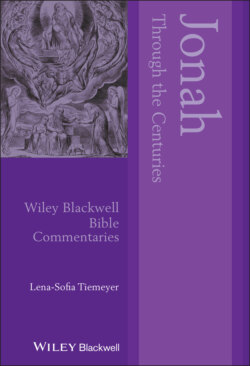Читать книгу Jonah Through the Centuries - Lena-Sofia Tiemeyer - Страница 10
Rabbinical and Mediaeval Jewish Interpretations
ОглавлениеThere are ample references to the Book of Jonah in various midrashic compendiums (e.g. Genesis Rabbah, Pesikta de-Rab Kahana). One dominant trend in rabbinical interpretation is to flesh out the Jonah narrative with details of the prophet’s background. Traditional Jewish exegesis equates the prophet Jonah with the eponymous prophet in 2 Kgs 14:23–25, as well as with the anonymous prophet who was active during Jeroboam II’s reign in 2 Kgs 9:1. In parallel, Jonah is commonly identified as the son of the widow of Zarephath, who died and was resurrected by Elijah (1 Kgs 17).
These backstories are then read into the fabric of the Book of Jonah. The identification of Jonah with the prophet in 1 Kgs 14 provides Jonah with a reason for his flight. Jonah had previously had bad experiences with non-fulfilment of his prophecy, and he feared that the same would happen if he went to Nineveh, thus causing people to consider him to be a false prophet (e.g. Seder Olam Rabbah, PRE). Another interpretation, also found among Christian interpreters, is that Jonah did not want to go to Nineveh because he was afraid that Nineveh’s repentance would reflect badly on Israel’s failure to repent (e.g. Mekhilta Attributed to R. Ishmael). In contrast, the identification of Jonah with the resurrected son in Zarephath often serves to develop Jonah’s life after his journey to Nineveh. The Lives of the Prophets, for example, describes how Jonah and his mother chose to settle in Tyre following his return from Nineveh, the reason being that Jonah was now regarded as a false prophet in his homeland.
The mediaeval Jewish exegetes continue to debate many of the same questions (e.g. Rashi, Ibn Ezra, Radak) although they often advocate different solutions. Investigating the particular issue of Jonah’s flight from his mission, Abarbanel portrays Jonah as a martyr, who decided to disobey God to ensure Israel’s survival: if Nineveh was not given the chance to repent, then God would have to destroy the city, which in turn would mean that Assyria would not be able to annihilate the Northern Kingdom of Israel. Further, in contrast to The Lives of the Prophets, Abarbanel maintains that Jonah’s resurrection occurred in childhood and thus sheds light upon Jonah’s reference to God having (already) saved him from Sheol in Jonah 2:3 [Eng. 2:2].
